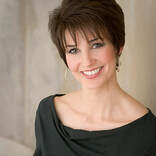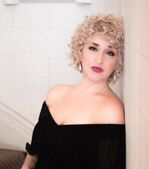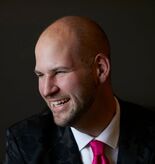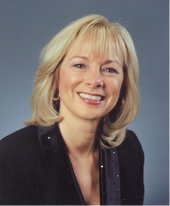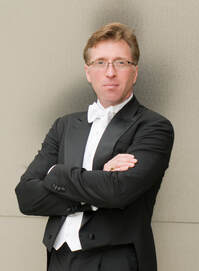|
PROGRAM
MESSIAH SING Since the premiere in Dublin in 1742, Handel’s Messiah has been performed by choirs across the world. Messiah was originally conceived as a work for Easter and was premiered in the spring during the Lent season. Kristen Plumley, soprano Jessica Ann Best, mezzo-soprano Nicholas Simpson, tenor Andrew Dwan, bass Linda Sweetman-Waters, organ Eric Dale Knapp, conductor George Frideric Handel 1685-1759 MESSIAH HWV 56 PART II The Passion in nine movements including the oratorio's longest movement, an air for alto He was despised, then mentions death, resurrection, ascension, and reflects the spreading of the Gospel and its rejection. The part is concluded by a scene called "God's Triumph" that culminates in the Hallelujah Chorus. Part III The final part of the oratorio concentrates on Paul's teaching of the resurrection of the dead and Christ's glorification in heaven. Part Three opens with one of the most astoundingly conceived arias in Handel’s output, air for soprano, “I know that my redeemer liveth”. MESSIAH SING TRADITION This cherished tradition invites all to share in singing Handel's masterpiece. All area singers are invited to participate. The public is invited to sing or simply listen. Scores will be available at the door or you may bring your own score. Want to practice ahead of time? Singers of all skill levels are more than welcome to join in singing the chorus parts for this Messiah Sing! If you would like to practice before the concert, we've included the linkl to practice videos for each voice part: messiahchoraleproject.weebly.com/ |
ABOUT THE PROGRAM
THE GLORIOUS HISTORY OF HANDEL’S MESSIAH Jonathan Kandell, Smithsonian Magazine, December 2009 A musical rite of the holiday season, the Baroque-era oratorio still awes listeners more than 250 years after the composer’s death. George Frideric Handel's Messiah was originally an Easter offering. It burst onto the stage of Musick Hall in Dublin on April 13, 1742. The audience swelled to a record 700. Handel composed Messiah in an astounding interlude, somewhere between three and four weeks in August and September 1741. "He would literally write from morning to night," says Sarah Bardwell of the Handel House Museum in London. The text was prepared in July by the prominent librettist, Charles Jennens, and was intended for an Easter performance the following year. "I hope [Handel] will lay out his whole Genius & Skill upon it, that the Composition may excel all his former Compositions, as the Subject excels every other Subject," Jennens wrote to a friend. There were several reasons for the choice of Dublin for Messiah's debut. Handel had been downcast by the apathetic reception that London audiences had given his works the previous season. He did not want to risk another critical failure, especially with such an unorthodox piece. Other Handel oratorios had strong plots anchored by dramatic confrontations between leading characters. But Messiah offered the loosest of narratives: the first part prophesied the birth of Jesus Christ; the second exalted his sacrifice for humankind; and the final section heralded his Resurrection. Dublin was one of the fastest-growing, most prosperous cities in Europe, with a wealthy elite eager to display its sophistication and the economic clout to stage a major cultural event. "So it was a great advantage for Handel to make the voyage to Dublin to try out his new work, and then bring it back to London," says Keates, comparing the composer to Broadway producers who tried out plays in New Haven before staging them in New York City. There is little doubt about Handel's own fondness for the work. His annual benefit concerts for his favorite charity—London's Foundling Hospital, a home for abandoned and orphaned children—always included Messiah. And, in 1759, when he was blind and in failing health, he insisted on attending an April 6 performance of Messiah at the Theatre Royal in Covent Garden. Eight days later, Handel died at home. Handel was a Governor and benefactor of the Foundling Hospital in London, an orphanage for poor and destitute children. To raise funds, he conducted Messiah and continued to do so for every year until his death in 1759. In total, he personally conducted roughly 36 performances of Messiah. The annual performances of Messiah provided vital sources of income for the Hospital and raised thousands of British pounds for relief on the streets. Charles Burney, an eighteenth century music historian, remarked that Handel's Messiah 'fed the hungry, clothed the naked, and fostered the orphan.” Another writer wrote, “Perhaps no other work has so largely contributed to the relief of human suffering.” His total estate was assessed at 20,000 pounds, which made him a millionaire by modern standards. He left the bulk of his fortune to charities and much of the remainder to friends, servants and his family in Germany. Amassing a fortune through his music and shrewd investments in London's burgeoning stock market, Handel donated munificently to orphans, retired musicians and the ill. (He gave his portion of his Messiah debut proceeds to a debtors' prison and hospital in Dublin.) A sense of humanity imbues his music as well—a point often made by conductors who compare Handel with Bach. But where Bach's oratorios exalted God, Handel was more concerned with the feelings of mortals. "Even when the subject of his work is religious, Handel is writing about the human response to the divine," says conductor Bicket. Nowhere is this more apparent than in Messiah. "The feelings of joy you get from the Hallelujah choruses are second to none," says conductor Cummings. "And how can anybody resist the Amen chorus at the end? It will always lift your spirits if you are feeling down." Ludwig van Beethoven said, “Handel is the greatest composer that ever lived. I would uncover my head and kneel on his grave.” Beethoven also praised Handel’s ability to achieve “great effects with simple means.” The verses used as text for Messiah were assembled by Handel’s friend Charles Jennens, a wealthy supporter of the arts. They were drawn from three parts of the Bible: Old Testament prophesies of the Messiah’s birth; New Testament stories of the birth of Christ, his death, and his resurrection; and verses relating ultimately to Judgment Day, with the final chorus text drawn from the Book of Revelation. Librettist Charles Jennens, who was a close friend and collaborator with Handel, used the biblical stories of Jesus for the Messiah’s text. Jennens described his work as “a meditation of our Lord as Messiah in Christian thought and belief.” But only the first third of the work was about the birth of Jesus. The second act covers the death of Jesus and the third focused on his resurrection. As such, the piece was originally conceived as a work for Easter and was premiered in the spring during the Lent season. In an age when illiteracy was widespread and written copies of the Bible were expensive and rare, Handel became excited about Jennens’ idea. Handel pioneered the “oratorio” a musical composition designed to teach the scriptures by setting them to music. He wanted to take the message of the scriptures to the streets and specifically with the intent that they would be heard in secular theaters. The church was outraged and protested, but Handel persisted even though doing this also meant little or no profit from his endeavors. At the end of his manuscript Handel wrote the letters 'SDG', meaning Soli Deo Gloria or 'To God alone the glory'. Handel wanted people to glorify God when they listen to or perform Messiah. PROGRAM 1. Sinfonia – (Instrumental) PART 2 22. Chorus – “Behold the Lamb of God, that taketh away the sin of the world.” (John 1, v.29) 23. Air (mezzo-soprano) – “He was despised and rejected of men; a man of sorrows, and acquainted with grief. (Isaiah 53, v.3); “He gave his back to the smiters, and his cheeks to them that plucked off the hair: he hid not his face from shame and spitting.” (Isaiah 50, v.6) 24. Chorus – “Surely he hath borne our griefs, and carried our sorrows: he was wounded for our transgressions, he was bruised for our iniquities: the chastisement of our peace was upon him;” (Isaiah 53, vv.4–5) 25. Chorus – “And with his stripes we are healed.” (Isaiah 53, v.5) 26. Chorus – “All we like sheep have gone astray; we have turned every one to his own way; and the Lord hath laid on him the iniquity of us all.” (Isaiah 53, v.6) 27. Accompagnato (tenor) – “All they that see him laugh him to scorn: they shoot out their lips, and shake their heads, saying,” (Psalm 22, v.7) 28. Chorus – “He trusted in God that he would deliver him: let him deliver him, if he delight in him.” (Psalm 22, v.8) 29. Accompagnato (tenor) – “Thy rebuke hath broken his heart; he is full of heaviness. He looked for some to have pity on him, but there was no man, neither found he any to comfort him.” (Psalm 69, v.20) 30. Arioso (tenor) – “Behold, and see if there be any sorrow like unto his sorrow.” (Lamentations 1, v.12) 31. Accompagnato (tenor) – “He was cut off out the land of the living: for the transgressions of thy people was he stricken.” (Isaiah 53, v.8) 32. Air (tenor) – “But thou didst not leave his soul in hell; nor didst thou suffer thy Holy One to see corruption.” (Psalm 16, v.10) 33. Chorus – “Lift up your heads, O ye gates; and be ye lift up, ye everlasting doors; and the King of glory shall come in. Who is this King of glory? The Lord strong and mighty, the Lord mighty in battle.” (Psalm 24, vv.7–10) 34. Recitative (tenor) – “Unto which of the angels said he at any time, Thou art my Son, this day have I begotten thee?” (Hebrews 1, v.5) 35. Chorus – “Let all the angels of God worship him.” (Hebrews 1, v.6) 36. Air (mezzo-soprano) – “Thou art gone up on high; thou hast led captivity captive, and received gifts for men: yea, even for thine enemies, that the Lord God might dwell among them.” (Psalm 68, v.18) 37. Chorus – “The Lord gave the word: great was the company of the preachers.” (Psalm 68, v.11) 38. Air (soprano) – “How beautiful are the feet of them that preach the gospel of peace, and bring glad tidings of good things!” (Romans 10, v.15) 39. Chorus – “Their sound is gone out into all lands, and their words unto the ends of the world.” (Romans 10, v.18) 40. Air (bass) – “Why do the nations so furiously rage together: and why do the people imagine a vain thing? The kings of the earth rise up, and the rulers take counsel together against the Lord, and against his Anointed.” (Psalm 2, vv.1–2) 41. Chorus – “Let us break their bonds asunder, and cast away their yokes from us.” (Psalm 2, v.3) 42. Recitative (tenor) – “He that dwelleth in heaven shall laugh them to scorn: the Lord shall have them in derision.” (Psalm 2, v.4) 43. Air (tenor) – “Thou shall break them with a rod of iron; thou shall dash them in pieces like a potter’s vessel.” (Psalm 2, v.9) 44. Chorus – “Hallelujah: for the Lord God omnipotent reigneth.” (Revelation 19, v.6); “The kingdom of this world is become the kingdom of our Lord, and of his Christ; and he shall reign for ever and ever.” (Revelation 11, v.15); “King of Kings, and Lord of Lords.” (Revelation 19, v.16) “Hallelujah!” PART 3 45. Air (soprano) – “I know that my Redeemer liveth, and that he shall stand at the latter day upon the earth: And though worms destroy this body, yet in my flesh shall I see God.” (Job 19, vv.25–26); “For now is Christ risen from the dead, the first fruits of them that sleep.” (I Corinthians 15, v.20) 46. Chorus – “Since by man came death, by man came also the resurrection of the dead. For as in Adam all die, even so in Christ shall all be made alive.” (I Corinthians 15, vv.21–22) 47. Accompagnato (bass) – “Behold, I tell you a mystery; we shall not all sleep, but we shall all be changed, In a moment, in the twinkling of an eye, at the last trumpet:” (I Corinthians 15, vv.51–52) 48. Air (bass) – “The trumpet shall sound, and the dead shall be raised incorruptible, and we shall be changed. For this corruptible must put on incorruption, and this mortal must put on immortality.” (I Corinthians 15, 52–53) 49. Recitative (mezzo-soprano) – “Then shall be brought to pass the saying that is written: Death is swallowed up in victory.” (I Corinthians 15, v.54) 50. Duet (mezzo-soprano/tenor) – “O death, where is thy sting? O grave, where is thy victory? The sting of death is sin; and the strength of sin is the law.” (I Corinthians 15, vv.55–56) 51. Chorus – “But thanks be to God, who giveth us the victory through our Lord Jesus Christ.” (I Corinthians 15, v.57) 52. Air (soprano) – “If God be for us, who can be against us?” (Romans 8, v. 31); “Who shall lay any thing to the charge of God’s elect? It is God that justifieth. Who is he that condemneth? It is Christ that died, yea rather, that is risen again, who is at the right hand of God, who makes intercession for us.” (Romans 8, vv.33–34) 53. Chorus – “Worthy is the Lamb that was slain, and hath redeemed us to God by his blood, to receive power, and riches, and wisdom, and strength, and honour, and glory, and blessing. Blessing, and honour, glory, and power, be unto him that sitteth upon the throne, and unto the Lamb for ever and ever.” (Revelation 5, vv.12–14) “Amen.” |
|
ABOUT THE ARTISTS
|
|
Kristen Plumley, soprano
A soprano with a sparkling voice to match her personality, Connecticut native Kristen Plumley brings her joy of being on stage to every role she performs. Lauded as “sensationally note-perfect” (St. Petersburg Times), “a roguish comedienne” (The Middletown, CT Press) and “Met-worthy” (The Dallas Morning News), Ms. Plumley has portrayed Adina (L'Elisir d'Amore) and Gilda (Rigoletto) with Greensboro Opera Company, Norina (Don Pasquale) and Zerlina (Don Giovanni) with Virginia Opera, Barbarina (Le Nozze di Figaro) with New York City Opera, Norina (Don Pasquale) and Zerlina (Don Giovanni) with Virginia Opera, Nannetta (Falstaff) and Amor (Orfeo ed Euridice) with Opera Festival of New Jersey, Sophie (Werther) with Chautauqua Opera, Adele (Die Fledermaus) with Boheme Opera (NJ) and Opera Theatre of Connecticut, Despina (Così fan Tutte) with Lyric Opera of Cleveland, the Sultan of Egypt (Glück’s Les Pelerins de la Mecque) with L’Opéra Français de New York, Yum-Yum (The Mikado) with Opera Memphis and Josephine (H.M.S. Pinafore) with Nevada Opera. Other roles to her credit include Juliette (Roméo et Juliette), Lauretta (Gianni Schicchi) and Kathy (Student Prince) and musical theater favorites Maria (West Side Story), Carrie (Carousel), Fiona (Brigadoon) and Laurey (Oklahoma!). On the concert stage, Kristen Plumley has performed a broad spectrum of works, including Mozart’s Coronation Mass and Haydn’s Mass in Time of War with the New England Symphonic Ensemble at Carnegie Hall, Mozart’s Mass in C minor and Elgar’s For the Fallen, Bach’s Coffee Cantata, Respighi’s Laud to the Nativity and Bach’s Cantata No. 1, A Yuletide Celebration (sacred and secular Christmas music) with the Indianapolis, Seattle and Portland Symphonies and An Evening of Gilbert and Sullivan with the symphony orchestras of St. Louis, Richmond, Memphis and Minnesota. Enthusiastic about contemporary works, she has been active in many new operas at the prestigious Banff Centre for the Arts (Alberta, Canada) and in companies throughout New York City. Ms. Plumley received an Artist Diploma in opera from the Hartt School of Music and a Bachelor of Arts in psychology and music from Holy Cross College. Twice a winner in the Connecticut Opera Guild Scholarship Competition, she is also a recipient of the Richard F. Gold Career Grant (Shoshana Foundation). kristenplumley.com |
|
Jessica Ann Best, mezzo-soprano
“Jessica is a rising star whose cross-genre appeal pushes beyond opera into musical theater and jazz, where she charms audiences with the luminosity of her instrument.” - Rob Gibson. Music Director, The Kessler Collection. Jessica Ann Best is a diverse cross-disciplinary artist, performing nationwide in opera, musical theater, concert, oratorio, recital, and jazz. Known for her interpretations and versatility; Best has premiered many new works including: Mrs. Otis and Madeline in Gordon Getty’s The Canterville Ghost and Usher House at LA Opera, The Stepmother in Anton Coppola’s, Lady Swanwhite with Opera Tampa, the International Carol Suites (soloist) by Mark Hayes, at Carnegie Hall, the roles of Bessie and Mary Rivers in Louis Karchin’s Jane Eyre, (The Center for Contemporary Opera), Mrs. Foster in Shot, (Nickel City Opera), and the title role of Alice in Alice Ryley, by Michael Ching, commissioned by the Savannah Voice Festival. Ms. Best has toured with Velvet Caravan; an award-winning, gypsy-jazz ensemble from Savannah Georgia; featuring concerts at the Iridum Jazz Club in New York City and Savannah Music Festival. She has been a featured artist with The Savannah Music Festival for the past five years and The Savannah Voice Festival for seven years. She has performed with The Buffalo Philharmonic Orchestra, The Florida Orchestra, The Santa Fe Opera, Opera Tampa, Gotham Chamber Opera, The Helena Symphony, Nickel City Opera, and Finger Lakes Opera. Ms. Best appears on the new recording of Louis Karchin’s Jane Eyre on the Naxos Label recorded in 2017 and released in 2019. In 2021, Ms. Best has recorded several virtual concerts for the Savannah Voice Festival and will complete a recording of Handel's Messiah with Westminster Presbyterian Buffalo in May 2021. She made her first live musical performance of 2021 returning to the Savannah Voice Festival for Pop Goes Puccini, with Lauren Jalencovich and Back to Before, singing favorites of opera, musical theater, and music from the 50s. Ms. Best joins the faculty of VOICExperience in Disney World this summer with the Florida VOICE Project. She will be featured as a director and resident artist in the live season of the Savannah Voice Festival summer of 2021! Best opened the 2020 season in a Broadway concert with the New Jersey Festival Orchestra under the director of Maestro David Wroe and joined the Miami Classical Music Festival as a leading guest artist on board the Celebrity Edge for A Musical Extravaganza At Sea. Best made her debut with Syracuse Opera as the Old Woman in Candide this February, and joined the New York State Ballet for An Evening of Duke Ellington. Best recently made her Birdland debut in The Lineup with Susie Mosher and has toured with the gypsy jazz ensemble, Velvet Caravan. She has been a featured artist with The Savannah Music Festival and The Savannah Voice Festival. She looks forward to returning to The Lineup and many of these organizations in the next year. While Covid-19 has canceled and rescheduled many performances in 2020 and 2021, Best has created and participated in virtual seasons including The Savannah Voice Festival and The Rochester Fringe Festival. Joining The Savannah Voice Festival for their virtual summer and holiday season, Best has learned how to film and record solo to larger ensemble works. She has co-produced and performed Jake Heggie's At the Statue of Venus and William Bolcom's Cabaret Songs with collaborative pianist, Yoshiko Arahata, for The Rochester Fringe Festival. Jessica has given online jazz live streams for A Small World through Victoria Opera House International, and has enjoyed performing and programming several Zoom concerts; which she is available for engagements. Best has recorded selection as guest artist with Syracuse Opera and filmed the alto soli in Handel's Messiah with Westminster Presbyterian Church early in 2021. Featured on several podcasts; Ms. Best has connected with an audience on The Mindful Mentor with Bree Gordon and Seasons of Resilience, with Kim Best and Mabel Ortiz. Ms. Best has been a guest speaker at The Mindful Mentor Bootcamp in February 2021. Best has also been a featured interview for "Voices of Covid," a project by Timothy Bostwick and the National Association for Teachers of Singing. Ms. Best is a Professor of Voice at Nazareth College in Rochester and holds her own private Best holds a Master of Music in Vocal Performance and Literature from Northwestern University and a Bachelor of Music in Vocal Performance and Literature from Nazareth College. Ms. Best is a proud member of AGMA and The Actor’s Equity Association. www.jessicaannbest.com |
|
Nicholas Simpson, tenor
Tenor Nicholas Simpson “possesses a voice that is flexible, but powerful...he literally stunned the public with his technical and expressive capability” (Corriere di Rimini) and has been praised by Opera News, for his “bel canto bona fides” and performances which “immediately seized attention with his full-bodied, brightly projected voice.” Nicholas has just concluded performances as Don Jose in Carmen, and as a soloist in opera and musical theater cabarets while traveling through Italy, France, Spain, Jordan, Egypt, India, Australia, and New Zealand on the Azamara Quest in conjunction with Magic City Opera. Nicholas has recently been heard as King Charles II in the New York premiere of Carlisle Floyd’s newest opera, The Prince of Players, with the Little Opera Theatre of New York, and as the tenor soloist in Beethoven’s 9th Symphony with Performance Santa Fe, under the baton of Joseph Illick. During the 2017-2018 season, Mr Simpson has appeared as Bacchus in Ariadne auf Naxos in Berlin, as Mario Cavaradossi in Tosca with the Maryland Symphony, in a series of Christmas Concerts with the Orchestra of Saint Peter by the Sea, in a concert tour of the south with mezzo soprano Cindy Sadler, and as Pinkerton in Madama Butterfly with The Festival of the Atlantic. In May of 2017, Mr Simpson sang the role of Giovanni in Daniel Catán’s opera La hija de Rappaccini with Alamo City Opera, which made history as the first professional Spanish language opera performed in San Antonio. In 2016, Mr.Simpson brought his vocal power to bear in a variety of leading roles, including Dick Johnson in La fanciulla del West at Apotheosis Opera, Don José in the Maryland Symphony’s and in Spotlight on Opera’s productions of Carmen; and the tenor soloist in Carmina Burana with the Flint Symphony; as well as appearing in numerous concert series across the United States. Recent seasons found Mr. Simpson making role and house debuts as the Kronprinz in Kevin Puts’ Pulitzer Prize winning opera Silent Night with Fort Worth Opera and singing a critically acclaimed performance as Paul in Korngold’s Die Tote Stadt with Cleveland Opera. Cleveland Classical noted that he was “… splendid as Paul, negotiating a punishingly high and demanding vocal line with strength and agility.” In 2015, Mr Simpson became the first tenor to sing the title role in the Dresden version of Wagner’s Tannhäuser in New York City since 1966. The performances of Tannhäuser with Apotheosis Opera were a success, and it was noted that “Tenor Nicholas Simpson was a full-throated hero who carried the role from beginning to end without strain.” (Voce di Meche). Mr Simpson has also appeared as Peter Quint in Britten’s The Turn of the Screw and Rodolfo in La bohème with Hub Opera. DC Theater Arts praised his “smooth, deeply rich tenor voice and a powerful presence as the poet Rodolfo” and noted his dramatic abilities as “exceptional”. Nicholas has appeared as Turiddu in Cavalleria rusticana with the Altoona Symphony, in the title role of Don Carlo with the Martha Cardona Theater, and in the title role of Il sogno di Scipione with Gotham Chamber Opera. He covered the role of Vaudemont and performed student matinees for Dicapo Opera’s production of Tchaikovsky’s Iolanta, sang Count Alberto in Opportunity Makes the Thief with Little Opera Theatre of New York; as well as Turiddu in Cavalleria rusticana and Rinuccio in Gianni Schicchi with Spotlight on Opera. He has performed with Sarasota Opera, Union Avenue Opera, Utah Festival Opera, and the Mediterranean Opera Studio & Festival in Sicily, and appeared in Austin Opera’s Opera on a Stick outreach concerts. Mr. Simpson grew up singing musical theatre, and has appeared professionally as Roger Sherman in 1776, Phil in Gypsy, the tenor of the foursome in Girl Crazy, and Nicely Nicely (understudy) in Guys and Dolls for Utah Festival Opera and Musical Theatre. On the concert stage, Mr. Simpson has been noted for his interpretation of Beethoven's 9th Symphony. He has performed the work with Chorus Austin, the Altoona Symphony, the Hershey Symphony, and Performance Santa Fe. Other recent concert appearances include the title role in Joshua with the San Gabriel Chorale and Orchestra, Beethoven’s Missa Solemnis with the Brooklyn Symphony, Rachmaninov’s Vespers with Chorus Austin., and highlights of Tannhäuser at the Baldwin-Wallace Wagner intensive program, under the direction of Timothy Mussard and Jane Eaglen. In 2011, his “lusty” performance of Rossini’s Petite Messe Solenelle with Chorus Austin earned him an Austin Critics nomination as best classical vocalist of the year in Austin for a performance that “made you feel the blood’s pulse and heat” (Austin Chronicle) and received the Desert Theatre League Award as Best Performer for his run of eight performances of the program "Nicholas Simpson in Love" at the Arthur Newman Theatre. Other concert appearances include the Four Tenors Concert with Opera Delaware, and selections from Tannhäuser for Performance Santa Fe and the Wagner Society of Santa Fe; Don José in Carmen for Spotlight Concerts, and guest soloist with the Grace and Spiritus Chorale. An accomplished singing teacher, Mr. Simpson has taught voice at Southwestern University, the Mediterranean Opera Studio, and he currently serves on the faculty of the Spotlight on Opera summer program. Simpson’s students have been admitted to Boston Conservatory, Mannes, Carnegie Mellon, the Eastman School of Music, the University of North Texas, and Southwestern University for undergraduate study, and the Eastman School of Music, the University of Texas, The Royal College of Music (London, UK,) Boston Conservatory, and the University of Texas at Austin for graduate performance degrees in voice. His students have gained admission to the prestigious Seagle Colony and the Miami Music Festival summer programs. Mr. Simpson holds a Bachelor of Arts in Spanish from the University of Missouri, and a Master of Music degree from Manhattan School of Music. www.nicholassimpsontenor.com |
|
Andrew Dwan, bass-baritone
Andrew Dwan is a versatile performer known for his magnetic stage presence. His previous roles include the title role in Mozart’s Le nozze di Figaro with San Jose Opera, Collatinus in Britten’s The Rape of Lucretia with New Camerata Opera, and Dulcamara in Donizetti’s l’Elisir d’Amore with City Lyric Opera. He recently completed his second summer at the San Francisco Merola Opera Program, where his Mephistopheles was praised for “rich, flexible tone and convincing acting” (Bay Area Reporter) and whose “constantly secure voice knew how to shape every phrase with dramatic significance” (Rehearsal Studio), as well as providing “comic delight out of ‘A Midsummer Night’s Dream’” (San Francisco Chronicle). Also an avid performer of contemporary works, he has performed Constantin Basica’s Knot an Opera with Fresh Squeezed Opera, Aldous Huxley in Anne LeBaron’s LSD: The Opera premiered at the Disney Redcat Hall, and Oulomenos in Jason Thorpe Buchanan’s Hunger, performed in conjunction with The Industry’s First Take. Andrew is a Bay Area native currently based in New York City, studying under the tutelage of Mark Schnaible. www.andrewdwan.com |
|
Linda Sweetman-Waters, piano Linda Sweetman-Waters’ keyboard talents have provided her with a multi-faceted career as a piano soloist, chamber musician, accompanist and organist. She has performed in New York City at Carnegie Hall, Saint Patrick’s Cathedral, Weill Recital Hall, Lincoln Center’s Bruno Walter Auditorium, Merkin Hall and WQXR’s “Listening Room.” Linda has also performed as guest soloist with the North Jersey Philharmonic and the Williamsburg Symphonia in Williamsburg, Virginia. On numerous occasions she has been guest artist with the Ridgewood Symphony and premiered the Concerto for Piano and Orchestra which was composed for her by Richard Lane. She was guest soloist with the Tianjin Symphony Orchestra in China and performed at the White House and the National Gallery of Art. Linda has dazzled audiences both in the United States and abroad. She performed in Vienna at The International Haydn Festival, in the famed Musikverein and in Beijing at the Forbidden City Concert Hall and in Shanghai at the Oriental Arts Center in celebration of the XXIX Olympiad. In her role as pianist/organist with the New Jersey Choral Society, she has performed in Berlin, Prague, Sidney and Rome. Her travels as a chamber musician have taken her to Copenhagen, London, Brussels and Zurich. As Linda Sweetman-Waters, piano an accompanist, she has collaborated with conductors Lenora Thom, Joshua Greene, Diane Wittry, Janna Hymes and currently with Eric Dale Knapp of the New Jersey Choral Society. With MidAmerica Productions, NYC, she has worked under the baton of John Rutter. In London, Linda was rehearsal accompanist for The Fire Within, a Concert of Friendship and Goodwill in tribute of the 2012 Summer Olympic Events. She also had the opportunity to perform in Southwark Cathedral, London and Christ Church Cathedral, Oxford. Linda was organist for The Normandy Festival in France with performances in Rouen at L’Eglise Saint-Maclou and in Paris at the L’Eglise de la Madaleine. She is an alumna of the Vienna State Academy of Music in Austria and a graduate of Fairleigh Dickinson University. In addition to her music studio, she is the organist at the First Presbyterian Church of Ridgewood New Jersey and Artist in Residence with the New Jersey Choral Society, and Connecticut Choral Society. She has served as an adjunct faculty member at William Paterson University and presently is on the board of the Professional Music Teachers Guild. |
|
Eric Dale Knapp, conductor
Mr. Knapp is a dynamic conductor whose commitment and energy empower the musicians he leads to give performances that embrace the soul. Maestro Knapp’s mastery of the choral and orchestral repertoire spans the full spectrum, from fresh yet authentic interpretations of traditional works to visionary performances of multimedia works of the new millennium. A versatile musical leader, equally adept with classics and pops, Knapp’s finely honed ability to communicate through both gesture and speech place him at the forefront of the rising conductors of his generation. Mr. Knapp has enjoyed success in music education at all levels, church music, collegiate teaching, and with accomplished amateur and professional choral and orchestral organizations. EDK has conducted in world-class concert halls, including Carnegie Hall (New York), the Sydney Opera House, Shanghai’s Oriental Arts Center, The Forbidden City Concert Hall (Beijing), The Cathedral of Our Lady of the Angels (Los Angeles), Dvorák Hall (Prague), Vienna’s famed Musikverein, Cadogan Hall and Southwark Cathedral (London), Lake Como Opera House (Italy) and the historical cathedral La Madeleine (Paris). Mr. Knapp is Artistic Director and Conductor of the Conductor of the Connecticut Choral Society and Orchestra, which he has led to critical acclaim both in the United States and abroad, and Artistic Director of Gotham Concerts, LLC. As Founder and Artistic Director of Orchestra Nexus EDK has appeared in concert under the auspice of ON & NEXUS CHORAL ARTISTS. NEXUS ARTS & CLUTURE is the Signature Corporation of ON which is currently under development for a post COVID-19 global relaunch. Mr. Knapp is based in New York City and is represented by Wade Artist Management – NY, NY. |
